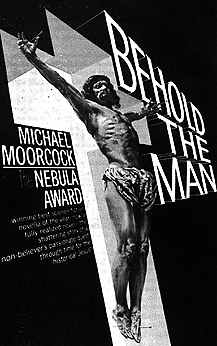

He is a dynamic character whose ultimate transformation causes the reader to consider not just him but the entire origins of the Christian faith. Glogauer is a sympathetically-drawn character one cannot help but to feel at least some pity on him as he struggles to deal with the neuroses that afflict him. Glogauer is weak and possibly demented – could this be seen as a commentary on those who are devout? While some might think this is so, evidence from the novel indicates something else is occurring. After all, the Jesus of this story is not the Christ of Catholic/Orthodox Masses or Protestant worship services. It would be easy to view this story as a simple denunciation of the faith people put in their religions. We experience his trials and tribulations, his struggles with women, his sinking into a sort of messiah-complex where he sees himself as reliving the agonies of the Passion, all in flashbacks that occur around the events in Palestine. Moorcock alternates between showing Glogauer in the "present" of Palestine and the "past" of mid-20th century England. Karl Glogauer, who time travels back to the Palestine of the Christ's ministry and execution, is beset with a range of issues ranging from his parents' divorce to the near-pathological association of his faults and desires with the symbolism of the cross.

Michael Moorcock in his 1969 short novel, Behold the Man, explores the psychological rationale that could lead to the imitation of the Passion. How could such a person endure that pain? Why would he choose such a punishment, if such a thing could ever be "chosen" in the first place? The Passion has left an indelible mark on European and some Asian and African cultures. The agony on his face contrasted with the taunting or mournful crowd. A Man (God?) hanging from the crossbeams, arms lashed in place with nails through the hands (wrists) and feet. Regardless of how one feels about the issue, the image of the Passion of the Christ strikes at the hearts of those who behold it in art, cinema, poetry, or even prose. He had been seventeen years old before he had been able to get to sleep without saying the ritual prayers and even then it had been his impatience to masturbate that had finally broken the habit. He had added to this a list of 'thank-yous' ('Thank you for a lovely day, thank you for getting the history questions right.') and 'sorrys' ('Sorry I was rude to Molly Turner, sorry I didn't own up to Mr Matson.'). That had been taught to him by a woman who looked after him for a while when his mother was at work. One was the Lord's Prayer and the other went God bless Mummy, God bless Daddy, God bless my sisters and brothers and all the dear people that surround me, and God bless me. He had taken to saying two prayers at night. He had been brought up, like most of his schoolfellows, paying a certain lip-service to the Christian religion.


 0 kommentar(er)
0 kommentar(er)
